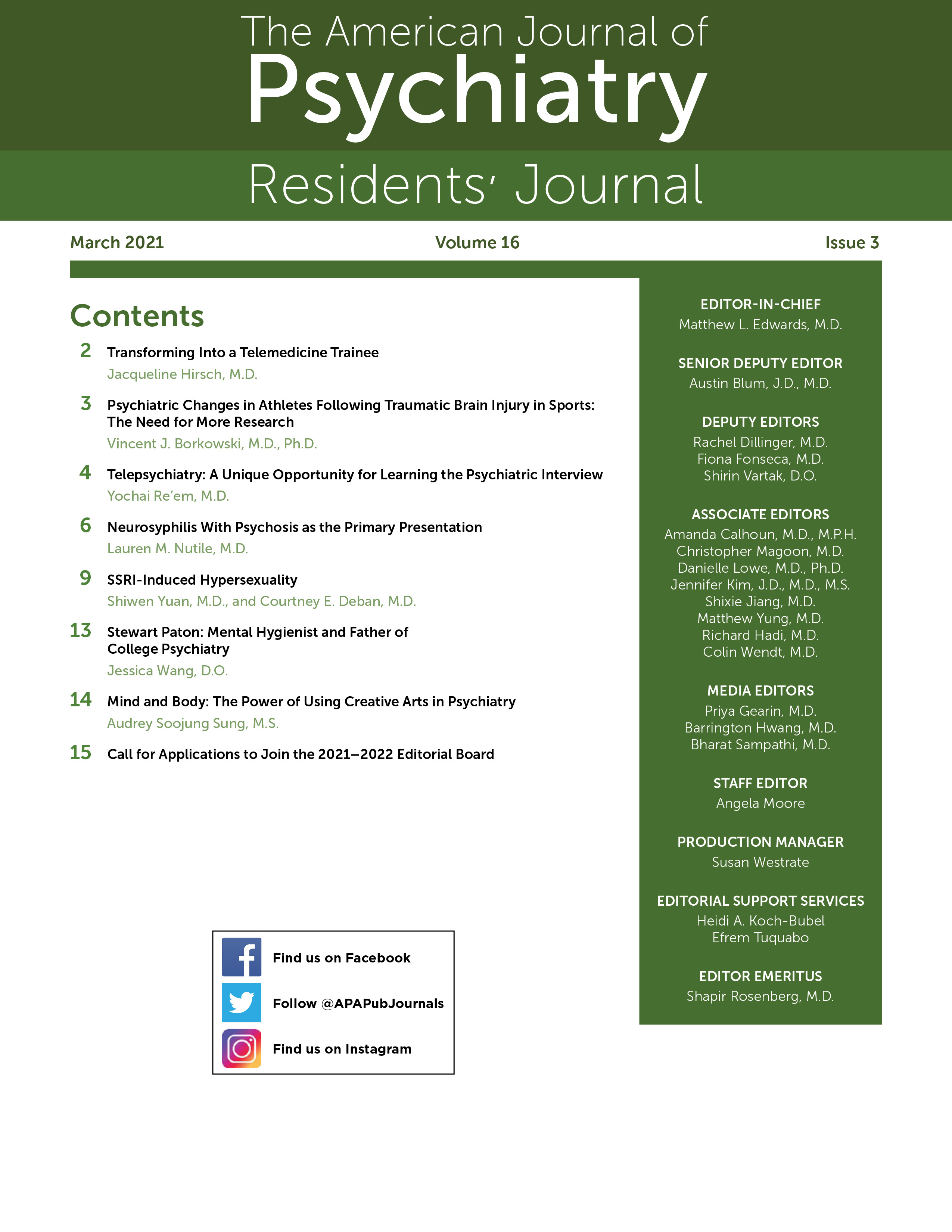The psychiatric interview introduces trainees to the world of the practitioner-patient relationship, along with methods to elicit information, induce patient self-reflection, and guide patients along a pathway of self-discovery. Throughout training, trainees discover the many ways in which they can bring aspects of the dynamic to conscious awareness in order to enhance engagement, lower defenses, and provide insight into the patient's internal structure. Mastering the delicate balance between content gathering, establishing rapport, being mindful of transference and countertransference, and other relationship-based factors, all while keeping these in conscious awareness, can appear an insurmountable challenge to the early learner (
1). Incorporating live supervision via telepsychiatry may serve as an important support to trainees in this process.
To date, in-person psychiatric training has primarily utilized two supervision techniques. The first, retrospective analysis of interview material, is achieved via observed, recorded, or videotaped interviews. The use of telepsychiatry for patient sessions allows the session to be recorded without the need for additional equipment, partially alleviating the concern that patients may react differently with an external camera. This format also ideally shows the faces of the patient and the provider in clear full view, so that their affects may be seen side by side. Although use of recorded sessions in a retrospective approach can lead to significant insights, the next step is often more challenging: learning from experience to actively shape future approaches.
Another common supervision technique is the live one-way-mirror. Utilizing telepsychiatry, supervisors may observe both the supervisee and the patient, sending real-time feedback in the form of messages (e.g., using the private chat function in Zoom). This may allow identification of cues put forth by the patient, comments on affect, suggestions for structuring, drawing parallels to prior sessions, and more. The benefit of this approach, compared with the retrospective approach, is such that the supervisee is able to adjust to feedback immediately in the course of the interview, instead of relying on the issue representing itself, or the learner remembering the feedback during the next session. This allows learners not only to appreciate the theory behind the techniques learned but to proactively apply the learned theory under the direction of a supervisor.
Among the many inherent limitations of telepsychiatry sessions with patients are factors such as "Zoom fatigue" (
2), inability to perform a complete physical exam, limited visual range, and inability to appreciate nuances in nonverbal communication. Given these limitations, future approaches may consider a combination of in-person sessions with digital supervision, because digital supervision has been shown to be as effective as the former (
3). Other considerations include the fact that real-time feedback may initially interfere with the supervisee's ability to be fully present in the interview, and patients may be put off by the idea of an invisible observer.
Despite these limitations, patients may be requesting telepsychiatry services in greater numbers, even as the pandemic eases. The direct supervision afforded by telepsychiatry may help refine the skills of supervisees, and as their comfort with the platform increases, supervisees may learn ways of overcoming the barriers described above. Ultimately, an approach that combines telepsychiatry with in-person supervision may promote a trainee's ability to integrate multiple sources of live feedback during an interview, helping the interviewer hone his or her skills. The forced transition to telepsychiatry presents a unique opportunity for training programs to embrace this change and implement new modalities of supervision.
Key Points/Clinical Pearls
